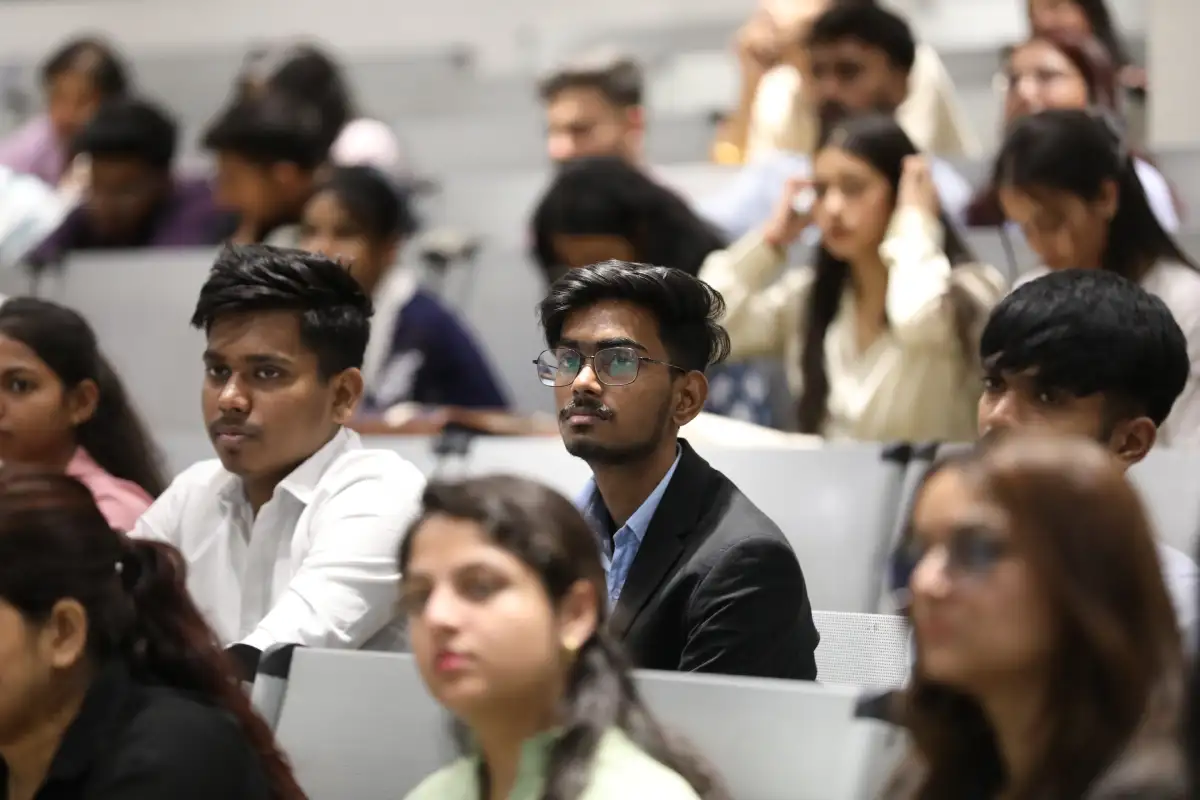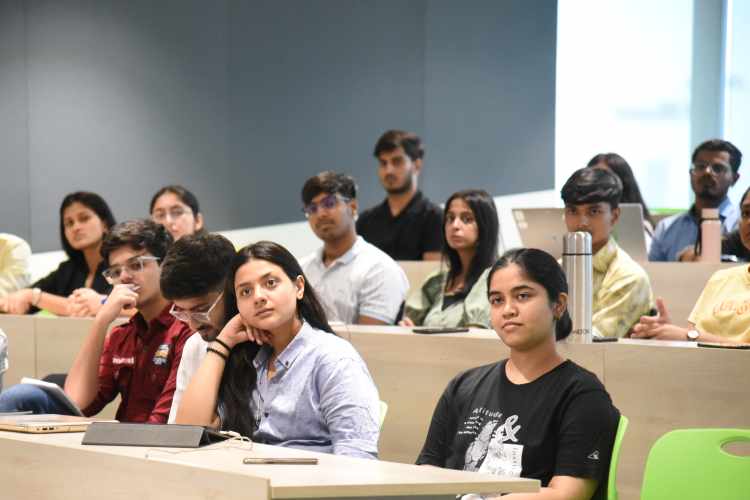3D Game Design at Bennett University Noida: A Comprehensive Guide to Your Gaming Career

Strong 8k brings an ultra-HD IPTV experience to your living room and your pocket.
The gaming industry is a global powerhouse, projected to exceed $250 billion by 2026, with India emerging as a key player due to its growing tech ecosystem and creative talent pool. Bennett University in Greater Noida is at the forefront of this revolution, offering a Bachelor of Design (B.Des) program with a specialization in Game Design. This four-year program is tailored for students passionate about crafting immersive 3D gaming experiences, blending creativity, technology, and industry-relevant skills. Below is an in-depth exploration of the program’s curriculum, facilities, fees, career prospects, and why it’s a top choice for aspiring game designers.
Why Choose Bennett’s B.Des in Game Design?
The B.Des 3D Game Design program, housed under the School of Design at Bennett University, is a dynamic blend of art, storytelling, and cutting-edge technology. It prepares students for high-demand roles such as game designers, 3D modelers, level designers, VR/AR developers, and esports content creators. With the Indian gaming market expected to grow at a 20% CAGR, graduates are well-positioned to capitalize on this boom. In 2024, Bennett’s B.Des graduates secured placements with leading firms like Scientific Games and Hungama Digital, with salaries ranging from ₹6 LPA to ₹10.2 LPA and an average of ₹7.5 LPA.
Bennett University, backed by the Times Group, leverages its industry connections to provide unparalleled exposure. Partnerships with gaming pioneers like Unity, Simulanis, and Yeppar ensure students work with real-world tools and scenarios. The program’s emphasis on practical learning, global perspectives, and entrepreneurial skills makes it a launchpad for both corporate careers and startup ventures in the gaming industry.
Curriculum: Building Expertise in 3D Game Design
The B.Des Game Design program spans eight semesters, requiring 160 credits for completion. It is meticulously structured to balance foundational design principles, technical proficiency, and specialized gaming knowledge. The curriculum, shaped by industry experts like Nitish Mittersain (CEO, Nazara Technologies), aligns with global standards and emerging trends.
Core Components
Foundational Skills: Courses in visual design, sketching, and digital art lay the groundwork for creating compelling game aesthetics. Students learn to craft characters, environments, and interfaces that enhance player engagement.
Game Mechanics and Programming: Modules cover game physics, scripting, and logic, enabling students to design interactive gameplay. Languages like C# and Python are taught for integration with game engines.
3D Modeling and Animation: Students master tools like Blender, Maya, and 3D Max to create detailed 3D assets, from characters to dynamic environments.
Storytelling and Narrative Design: Courses focus on crafting immersive narratives, ensuring games resonate emotionally with players.
Emerging Technologies: The curriculum integrates augmented reality (AR), virtual reality (VR), and artificial intelligence (AI) to prepare students for next-gen gaming trends like metaverse development.
Specializations
From the fourth semester, students dive into specialized tracks:
Entertainment Game Design: Focuses on creating commercial games for platforms like consoles, PCs, and mobile devices.
Serious Game Design: Explores games for education, healthcare, and social impact, such as simulations for medical training or environmental awareness.
Practical Learning
The program emphasizes hands-on experience through:
Semester Projects: Each semester includes a project to apply skills, from designing game levels to developing prototypes.
Mandatory Internships: Students undertake internships with gaming studios or tech firms, bridging academic learning with industry demands.
Capstone Project: The final year features a comprehensive project, allowing students to create a fully functional game or demo, often showcased to industry recruiters.
Students work extensively with industry-standard tools like Unity, Unreal Engine, and Adobe Creative Suite in Bennett’s advanced labs. The curriculum also includes courses on user experience (UX) design, game monetization strategies, and esports management, ensuring graduates are versatile and job-ready.
State-of-the-Art Facilities
Bennett University’s infrastructure is a cornerstone of its Game Design program. The School of Design boasts:
VR and AR Labs: Equipped with high-end headsets and motion capture technology for developing immersive experiences.
Gaming Studios: Dedicated spaces with powerful workstations for 3D modeling, rendering, and game testing.
3D Printing Lab: Enables students to prototype physical game assets and experiment with tangible designs.
Innovation Hub: A collaborative space for ideation, hackathons, and cross-disciplinary projects.
These facilities, combined with access to industry mentors, create an environment where creativity and innovation thrive.
Fee Structure for 2025
The financial commitment for the B.Des Game Design program is structured as follows:
Tuition: ₹22,48,000 (₹5,62,000/year for four years).
Application Fee: ₹1,200 (non-refundable).
Security Deposit: ₹30,000 (one-time, refundable).
Hostel Fees: Approximately ₹5,10,000 (three years, triple sharing, subject to a 7% annual increase, excluding summer breaks).
Additional Fees: ₹26,000/year for sports (day scholars), ₹12,000/year for examinations.
Bennett offers merit-based scholarships up to 50% for students with exceptional Class 12 scores or UCEED ranks. Scholarships are renewable with a minimum CGPA of 8.0 and no backlogs, making the program accessible to deserving candidates.
Career Prospects and Industry Connections
The B.Des Game Design program opens doors to diverse career paths in the gaming and tech industries. Graduates can pursue roles such as:
Game Designer: Crafting gameplay mechanics and narratives.
3D Artist/Modeler: Creating assets for characters and environments.
VR/AR Developer: Building immersive experiences for gaming and simulations.
Esports Specialist: Managing tournaments and content creation.
Game Programmer: Coding game logic and mechanics.
Bennett’s strong placement cell connects students with top recruiters like Nazara Technologies, Hungama Digital, and Simulanis. The university’s industry partnerships ensure internships and live projects, giving students a competitive edge. In 2024, over 80% of B.Des graduates secured roles within six months of graduation.
The program also fosters entrepreneurship through Bennett Hatchery, the university’s startup incubator. Students with innovative game ideas receive mentorship and access to funding, with past ventures securing up to ₹21 crore in investments.
Why Bennett University Excels
Industry-Aligned Curriculum: Designed with input from gaming pioneers, ensuring relevance.
Global Exposure: Opportunities for international workshops, webinars, and collaborations with global universities.
Holistic Development: Hackathons, design sprints, and industry visits enhance practical skills.
Strategic Location: Greater Noida’s proximity to Delhi-NCR’s tech hub offers networking and job opportunities.
Tips for Aspiring Game Designers
Build a Portfolio: Showcase projects from Bennett’s labs on platforms like ArtStation or GitHub.
Stay Updated: Follow gaming trends on platforms like X to explore innovations like cloud gaming.
Network Actively: Attend industry events and connect with professionals via LinkedIn.
Bennett University’s B.Des in Game Design is a transformative journey for aspiring game creators. With its blend of creativity, technology, and industry connections, it equips students to lead in the global gaming landscape. Apply for 2025 at www.bennett.edu.in to start crafting the next big game!
Note: IndiBlogHub features both user-submitted and editorial content. We do not verify third-party contributions. Read our Disclaimer and Privacy Policyfor details.






